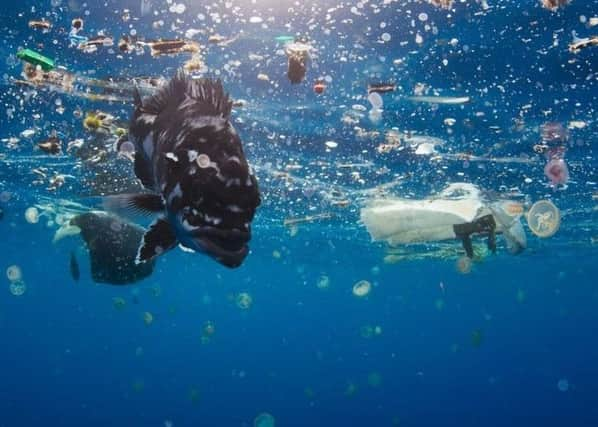Plastic is a real menace to our seas and wildlife


Plastic pollution in our seas is a critically-important topic. Plastic pollution along our coasts has more than doubled in the last 15 years – it is estimated that eight million individual pieces of marine litter enter the sea every day, with plastics making up the majority.
A report produced by the World Economic Forum at the start of 2016 stated that if nothing changed and plastic production and waste continued, the ocean would contain one tonne of plastic for every three tones of fish by 2025 and by 2050 plastics would out-weigh fish in our oceans.
Advertisement
Hide AdAdvertisement
Hide AdPlastic pollution is a danger to our marine life and research has found 94% of fulmars in the North Sea have been found to have plastic in their stomach.
Plastics are known to contain and absorb toxic chemicals, with research on wild animals showing these chemicals are released into the animals’ tissues. Ingestion of large pieces of plastic is not the only issue; we are seeing many animals along our own coast entangled in plastic wrapping and nets.
It is not just large plastic causing the problem, micro-plastics (defined as being less than 5mm long) are also turning up in our fish and shellfish.
It is not just our marine life, but our tap water has now been found to contain plastic fibre. European countries including the UK, Germany and France showed some of the lowest levels of those countries tested, but plastic fibres were still present. Plastic is a part of our everyday life and it is entering our waterways and seas, often without us being aware, such as through washing our clothes (fleeces can give off up to 1,900 plastic fibres per wash) and washing down the drains in cosmetic products.
Advertisement
Hide AdAdvertisement
Hide AdPlastic has its uses and its place, but we need to look at reducing single-use plastic items wherever we can.
The Marine Conservation Society’s Great British Beach Clean last year saw an increase of 10% of litter along our shores, with 718 pieces of litter on average per 100m of beach in the UK.
The 2017 results showed 30% of the litter found were things dropped by the public, mostly food and drink packaging.
A further 8% came from things that have been flushed down the toilet that should have been binned – wet wipes and cotton buds being two key items.
Advertisement
Hide AdAdvertisement
Hide AdWe might not be the cause of litter entering our environment, but helping to reduce plastic use and changing our habits I feel will be beneficial in the long term and reduces the chance we are inadvertently adding to the problem.
Reducing the reliance on single-use plastics will help reduce plastic pollution in our seas.